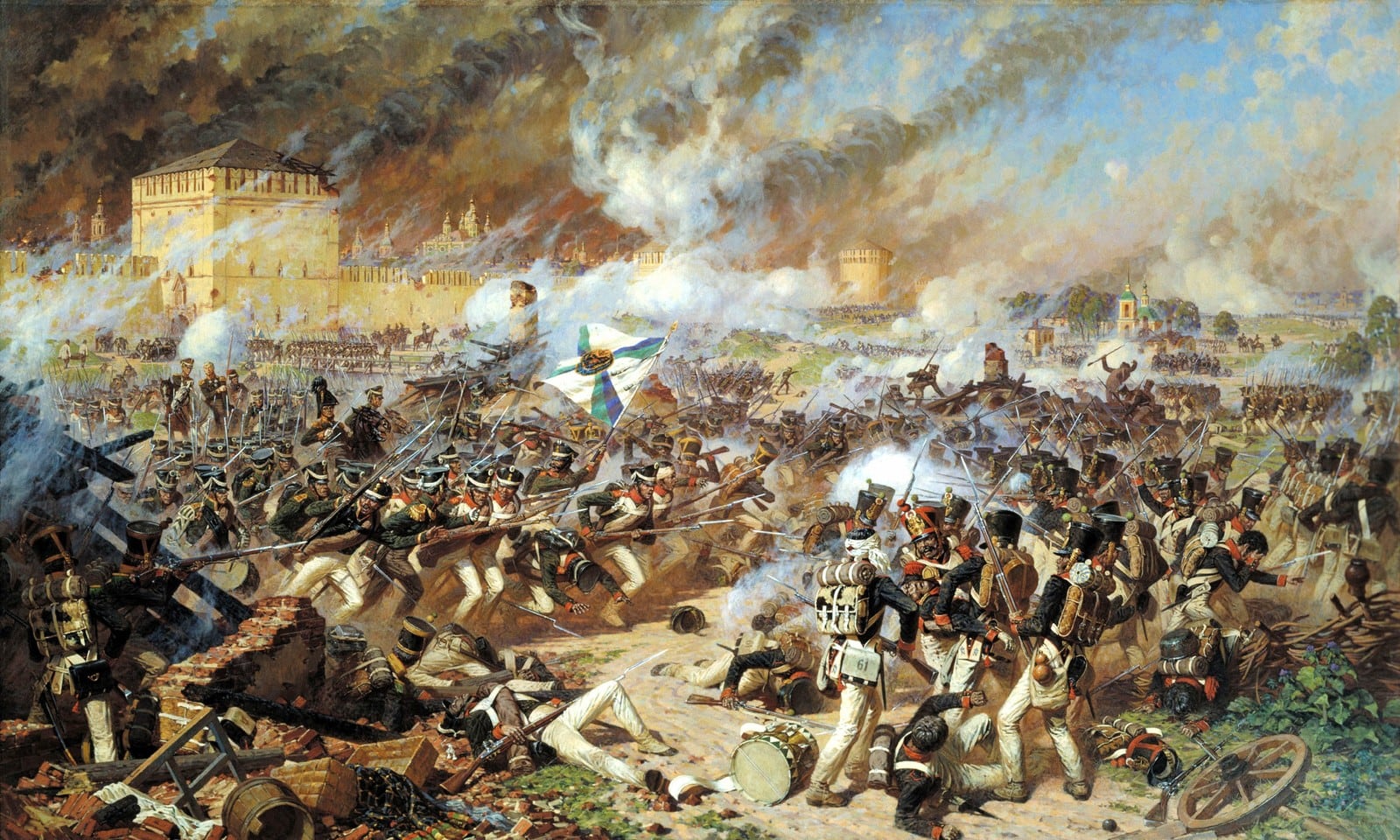TucoSalamanca:přesně
17.8. 1812 Battle of Smolensk
Categories: Years of war and revolution , Calendar

On August 15, 1812, the situation looked as if the enemy had indeed been stopped at Smolensk, forced into a decisive battle, and destroyed. Over the next two days, 150,000 men of the Grand Army fought against 120,000 Russians. The main force of
the French army left on 16. July 1812, under Napoleon's command, set out on a diligent march eastwards, towards Vitebsk, as if to make up for lost time. The soldiers marched along narrow roads through endless forests, and if they reached a village, it was as deserted as the whole surrounding countryside. The inhabitants abandoned their dwellings and destroyed everything that might fall into the enemy's hands. The bridges were burned, the food supplies taken away, the cattle driven off.
The war proceeded quite differently from what Napoleon had imagined. He was beginning to realise that it was not he who was imposing his will on the enemy and dictating the course and character of the conflict. "He was alarmed to find that his army was growing thinner and thinner, although it had not yet fought a single serious battle. Many of the young recruits could not endure the hardships of endless marches and were dying of disease and exhaustion," Otto Hans-Dieter writes in Shocking Victory: The Most Surprising Upsets in the History of Warfare.
Soldiers had no mouths to feed, looting, marauding and desertion were rampant. Discipline in the nationally diverse army was rapidly declining. Horses ate the straw from the thatch on the roofs and gradually perished, so that even Napoleon himself had to continue on foot in places. Of the 225,000 men of the main army who had crossed the Niemen, only 150,000 had reached Vitebsk.
Wracked with doubts about his decision, Napoleon again remained idle in Vitebsk for over two weeks. Only after much hesitation did he decide to advance and pursue the Russian army. He did not heed the warnings of some of his marshals, who did not want to be drawn deeper into the heart of the enemy's country.
By mid-August 1812, the situation looked as if he had indeed succeeded in stopping the enemy at Smolensk, forcing a decisive battle and destroying him. Over the next two days, 150,000 men of the Grand Army fought against 120,000 Russians. "But the coveted decision did not happen. Two Russian corps repulsed the French attack in a heroic struggle and thus covered the further retreat of the main forces eastwards," Otto Hans-Dieter further states.
Napoleon lost over 20,000 dead and wounded. When he pulled into Smolensk, he found only ruins, deserted ruined streets and the bare walls of food warehouses. He now set his exhausted soldiers their next target - Moscow! He poured into their veins courage and a new hope that they would enter there victoriously, recuperate in beautiful, comfortable apartments, and spend the winter in the streets of the great city.
After the indecisive battle of Borodino, Napoleon and his army did indeed stand at the gates of Moscow. However, on the orders of the commander Kutuzov, the city was burned and the population evacuated.
Sources:
Otto Hans-Dieter, Shocking Victories: The Most Surprising Turns in the History of War
Lingea, Moscow Guide
www.britannica.com
The article is included in categories:



